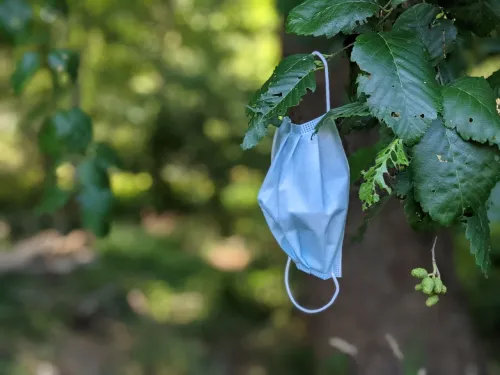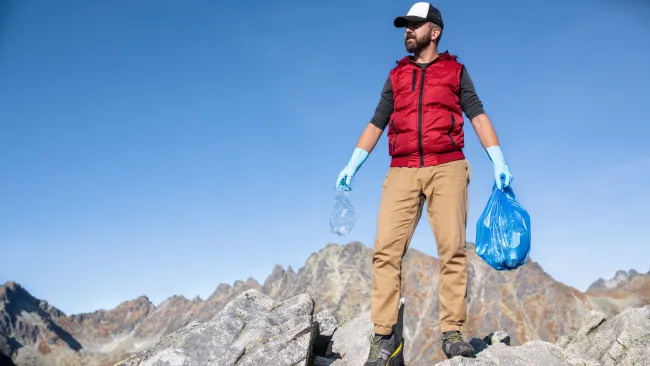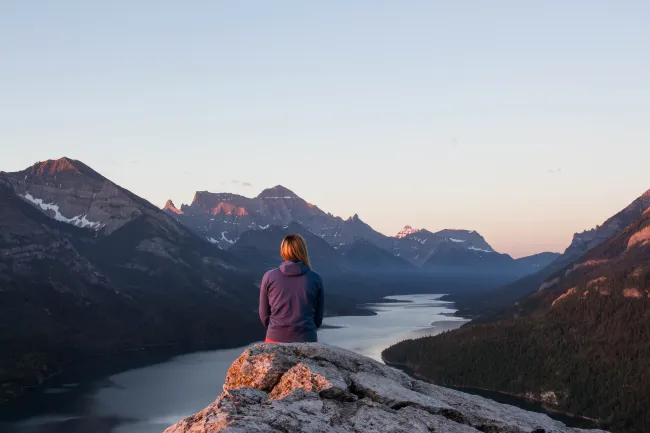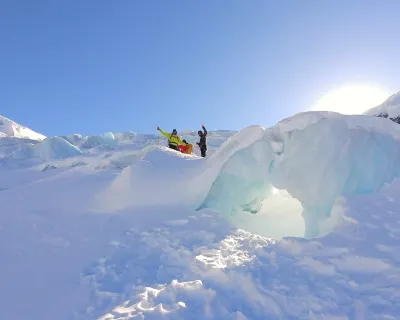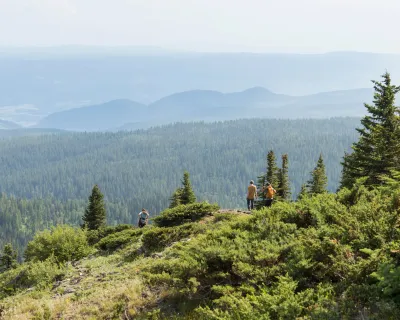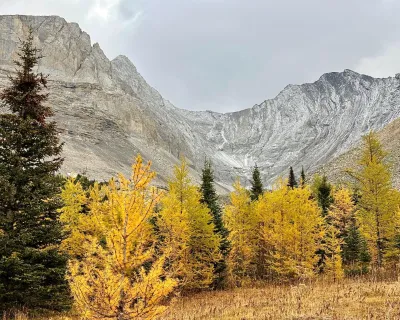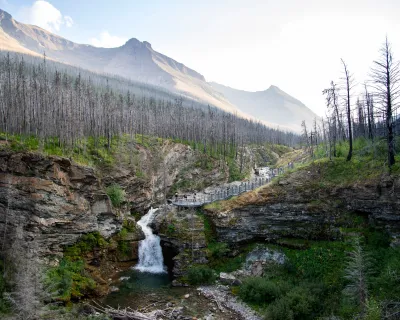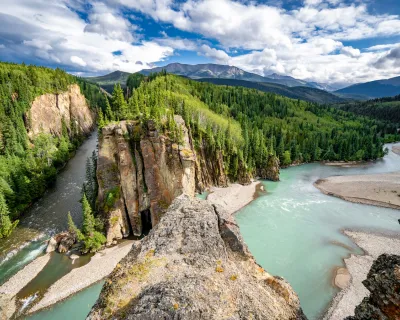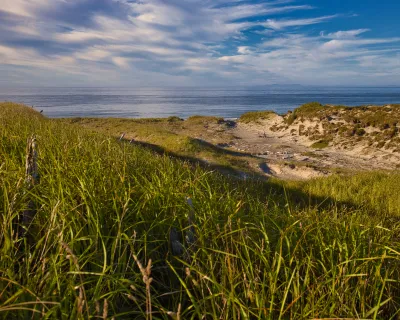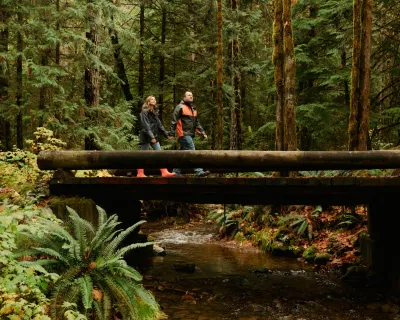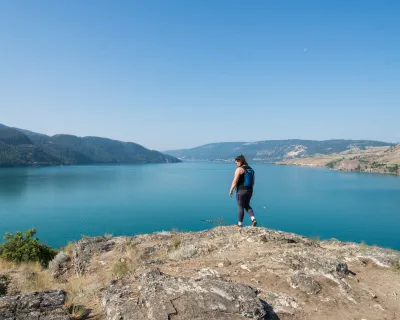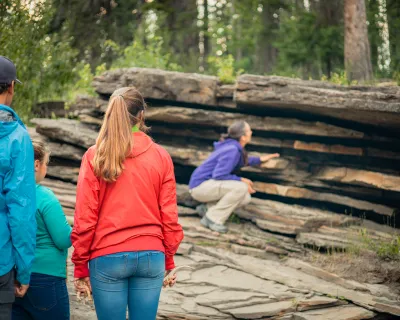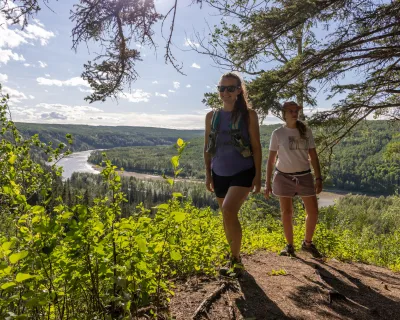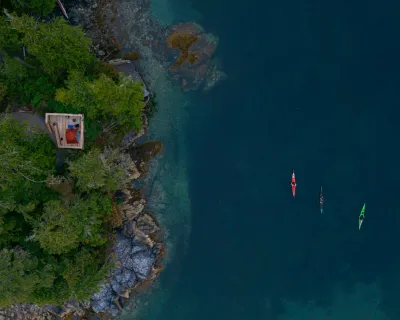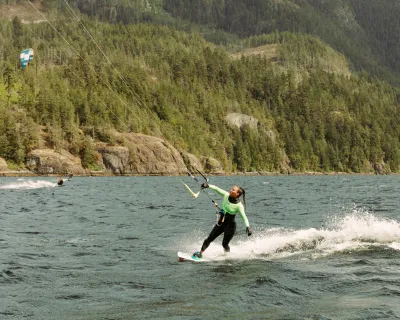Stop the trail of trash
The world needs to heal on so many levels. As humans, the pandemic sent us into a tailspin that will take us years to recover from. But beyond thinking about our own species, we need to step back and really take a look at what we are doing to the rest of the world.
In recent days, people have turned en masse towards the great outdoors. And left a mess. So, since we are still in the mood to hit the trails and the beach, let's see how we can tackle the trail of trash. It will help us all heal.
The blue mask storm
The latest in the storm of debris floating in the wind and the water is our blue covid masks and latex gloves. Seeing them abandoned or lost on a beach or trail is sickening. If left to decompose, expect to still see it there in 450 years. Photos flood the internet of animals tangled in the elastic straps. Tell me that doesn’t tug at your heart. The number one rule of thumb for those disposables on the trail: pack out what you pack in.
Here’s the big problem: plastic
Single, multi-use—it doesn’t matter, plastic ends up everywhere. According to Environment and Climate Change Canada, our nation recycles just nine per cent of its plastics with the rest dumped in landfills and incinerators.
SIGN UP FOR OUR E-NEWS AND HELP KEEP THE TRAILS ZEN FOR EVERYONE
While the agency says only one per cent ends up in nature and waterways, that’s still a staggering 29,000 metric tonnes of straws, six-pack holders, bags and pop bottles. While the government plans to achieve zero plastic waste by 2030, individually we can start being part of the solution now.
Solution to the plastic problem at home
While it’s not trail specific, plastic use in our homes affects the environment too. Less plastic in home waste headed to landfills means less leaching into the environment.
Let’s find ways to eliminate our dependency on single use plastic and find ways to reduce it in other parts of our lives.
Here are a few ideas to reduce human impacts:
- Using our own bags at the grocery store is becoming a habit for many of us. But if you forget them, some grocery stores offer paper bags as an alternative, or some places like Calgary Coop have compostable bags. (Hint: their compostable bags are cheaper than the ones you purchase to line your kitchen compost bins.)
- Avoid plastic straws, stir sticks and takeout containers made from hard-to-recycle plastic.
- We love plastic containers in the kitchen but what’s wrong with reusing that yogurt container again and again?
- Switch to bamboo for party plates, utensils and your toothbrushes! Seriously – over 50 million pounds of plastic toothbrushes are tossed out each year.
What’s this got to do with trash on the trail?
Everything! In the movie Jurassic Park, Jeff Goldblum said something like, “A butterfly can flap its wings in Peking, and in Central Park, you get rain instead of sunshine.”
Well, Goldblum isn’t a scientist, and neither was the writer because the chaos effect doesn’t really work that way, but I’m drifting from the point. The point is, if you do your part in Calgary or Vancouver or Nelson or Peking, it reduces the impact on the earth. One less piece of plastic in the wind or water, and one less blue mask trapped in the grass helps us all – as in every species.
With that said, as you trek along the beach or along a trail, take that dreaded disposable plastic bag with you. On your way back to the parking lot, use a stick to skewer debris and put it in the bag. Toss it all in the garbage bin at the parking lot and feel very good about leaving no trace.
It's a group effort
Look around your neighbourhood, and join a community cleanup day - like this one in Nanaimo.
If you’d like to help in Calgary, the annual pathway and river cleanup happen in September. Individuals or groups can sign up here to claim a park, trail or part of the river.
Join a movement. The Tla-o-qui-aht Tribal Parks Alliance is protecting and preserving one of the planet’s most ancient gardens which includes a very popular tourist spot you might know as Tofino. Find out how you can support this effort.
Or, check out the Great Canadian Shoreline Cleanup. What started as a cleanup of debris in Stanley Park in Vancouver in 1994, has now gone nationwide cleaning up over 2 million kg of trash on Canadian shores.
Back to that butterfly in Peking. It can’t be the only butterfly flapping its wings. And that’s the same with reducing our impact on the earth. One butterfly or one person passionate about zero waste is not going to change it all. What we need is everyone doing their part, big or small. Refuse to use single-use plastic, reuse your plastic food containers, recycle. And next time you see something that needs to be picked up on the trail, flap your wings. It will make a change.
